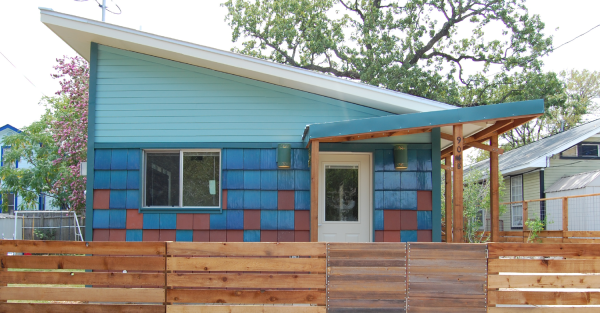Three Planning Faculty Awarded Faculty Innovation Grants Focused on Affordable Housing

As part of the university’s effort to address issues of pressing importance to the Austin community, the Office of the President has awarded four Faculty Innovation Grants to faculty-led research projects focused on affordable housing. Of the four projects selected university-wide, three were proposed by members in the school’s Community & Regional Planning Program: Associate Professor Elizabeth Mueller, Associate Professor Jake Wegmann, and Professor Ming Zhang.
As the cost of housing in Austin continues to rise at unprecedented levels, affordable housing is a major issue for the city, region, and the university itself – threatening the social and economic vitality of the area, and impacting the university’s ability to recruit and retain students, faculty, and staff. By focusing the university’s resources on acute societal challenges like housing affordability, faculty research and expertise can be leveraged by public, private, and nonprofit stakeholders to help ameliorate some of these issues. To this end, Mueller, Wegmann, and Zhang will each receive $25,000 to support their research proposals, detailed below.
Increasingly, the School of Architecture has been called upon by the city and other stakeholders to contribute our expertise on matters that have an immediate and long-term influence on the transformation of cities and regions. Through both individual faculty research and the Center for Sustainable Development, the school’s research enterprise has grown to millions of dollars in funding from public, private, and nonprofit sources—highlighting the importance of our work in contributing to a better built environment and world.
Congratulations to Dr. Mueller, Dr. Wegmann, and Dr. Zhang, who will present their findings at a future symposium on the UT Austin campus.
Improving Housing Conditions and Stability for Residents of “Naturally Occurring Affordable Housing” in Austin, Texas – Principal Investigator, Elizabeth Mueller
Mueller and her team will identify strategies that the City of Austin Housing and Planning Department can use to foster improved housing conditions and greater housing stability for tenants living in Naturally Occurring Affordable Housing (NOAH), a housing term of residential rental properties that are affordable as compared with local markets but not subsidized by government programs. The project will include research specifically centered around the extent and character of health-threatening housing conditions, as well as the extent and character of management practices that produce or undermine housing stability.
Alley Flat Initiative Anti-Displacement Pilot – Principal Investigator, Jake Wegmann
Wegmann and his team aim to evaluate the extent to which Austin’s Alley Flat Initiative Anti-Displacement Pilot is reducing or removing barriers to developing accessory dwelling units (known as alley flat units) among participant homeowners. The initiative promotes the construction of small housing units co-located with single-family houses owned by homeowners of moderate income. This evaluation will help the Community Powered Workshop, the Austin-based nonprofit partner for the program, better operate the program at a larger and more transformational scale in Austin, while also providing lessons that can be used for similar projects across the country.
Develop a Planning Support Tool for Promoting Equitable Transit-Oriented Development and Affordable Housing in Austin, Texas – Principal Investigator, Ming Zhang
Working with the City of Austin Housing and Planning Department and Capital Metro, Zhang and his team will develop a multiobjective optimization tool for Equitable Transit-Oriented Development (ETOD) planning in transit corridors. The research team aims to research the modifications of the five attributes of transit-oriented development –density, diversity, design, distance to transit, and destination accessibility—to achieve ETOD goals.
Photo 1: Alley Flat Initiative
